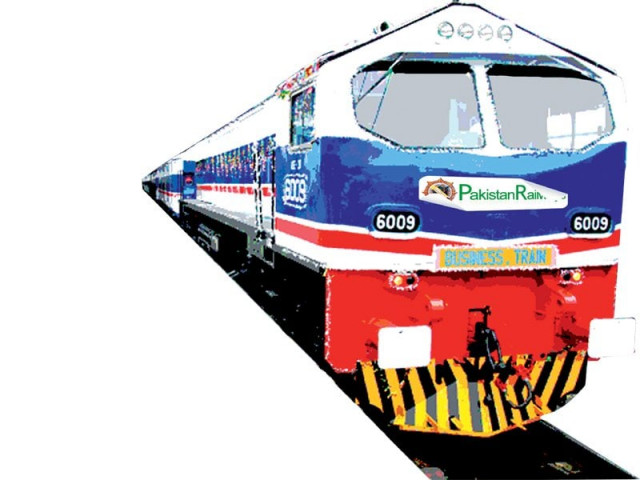Business Express: Auditors question contract changes, suspect revenue slippages
Pak Railways’ revenue share in train service cut from 88% occupancy to 65%.

According to Deloitte, in first eight months of operations, average occupancy of Business Express was 63%, leading to losses of Rs267 million. DESIGN: SAMRA AAMIR
Federal auditors have questioned the rationale behind the Economic Coordination Committee’s decision to amend a contract awarded to a private concern for operating the Business Express train service, believing it will cause a loss of Rs2 billion to the national exchequer over a period of five years.
In a meeting of the Public Accounts Committee (PAC) held here on Wednesday, Acting Auditor General of Pakistan Tanveer Ahmad commented that the basis on which the ECC – the economic decision-making body of the cabinet – reduced revenue share of Pakistan Railways (PR) in Business Express “does not seem reliable”.
The revenue share of PR in the train has been slashed from 88% occupancy to 65%. This will bring down the national carrier’s earnings by Rs1.1 million per day and the loss will reach Rs2 billion for the five-year contract period.
Four Brothers, the operator of the train which was required to pay Rs3.2 million per day to the PR, will now be paying Rs2.1 million, said Arif Azeem, Secretary of the Ministry of Railways, while briefing PAC on the contours of the deal and recent changes made in it.
PR awarded the contract to Four Brothers for running the train between Karachi and Lahore on public-private partnership model with terms that they would pay an amount equivalent to 88% occupancy or Rs3.2 million per day besides investing Rs225.8 million in coaches and locomotives.

PAC members asked whether the ECC had the authority to review the agreement and whether the decision-makers would be questioned by the National Accountability Bureau. But nobody had answers to these questions.
The ECC took the decision in the wake of a report prepared by third party evaluator Deloitte, which suggested that Four Brothers was posting losses and government’s revenue share could be reduced to 65%. Deloitte’s findings were, however, based on revenue receipts and it overlooked actual occupancy.
Arif Azeem said Deloitte found that not even a single train was running on 88% occupancy, citing PR’s best train service – the Karakoram Express – which was running on 65% occupancy.
According to Deloitte, in first eight months of operations, average occupancy of Business Express was 63%, leading to losses of Rs267 million.
“The basis of working out losses and occupancy does not seem reliable as there are slippages on the revenue side,” said Tanveer Ahmad. According to observations of the auditors, revenue trends and train occupancy did not match, as there was revenue pilferage, he added.
He asked PAC to look deeper into all these issues, suggesting strong oversight and scrutiny to win people’s trust.
Four Brothers was charging passengers Rs5,500 per seat while the government received money on the basis of Rs3,500 per seat. After resisting for almost a year, the train operator recently shared the details of sales, said Arif Azeem.
He pointed out that the operator accused the PR of providing inaccurate data of Karachi-Lahore passenger traffic.
PAC members described the operator’s claim of losses as suspicious because of revenue pilferage and per seat fare of Rs5,500. However, they supported the public-private partnership model, believing it would ease the state-owned entity’s financial woes.
Azeem told the committee that Business Express was not well received by the business community and the operator started defaulting on guaranteed payments since day one. Until January 31, Four Brothers had to pay Rs345 million to the PR.
“Trains are over-booked but revenue is low due to pilferage,” claimed Riaz Fatyana of the PML-Q. The private operator struck a smart deal and was selling tickets for Rs5,500 per seat, but paid government’s share on the basis of Rs3,500 per seat, he said.
The auditors also highlighted the biggest flaw in the deal – exclusion of the bank guarantee clause.
Published in The Express Tribune, February 7th, 2013.
Like Business on Facebook to stay informed and join in the conversation.


















COMMENTS
Comments are moderated and generally will be posted if they are on-topic and not abusive.
For more information, please see our Comments FAQ